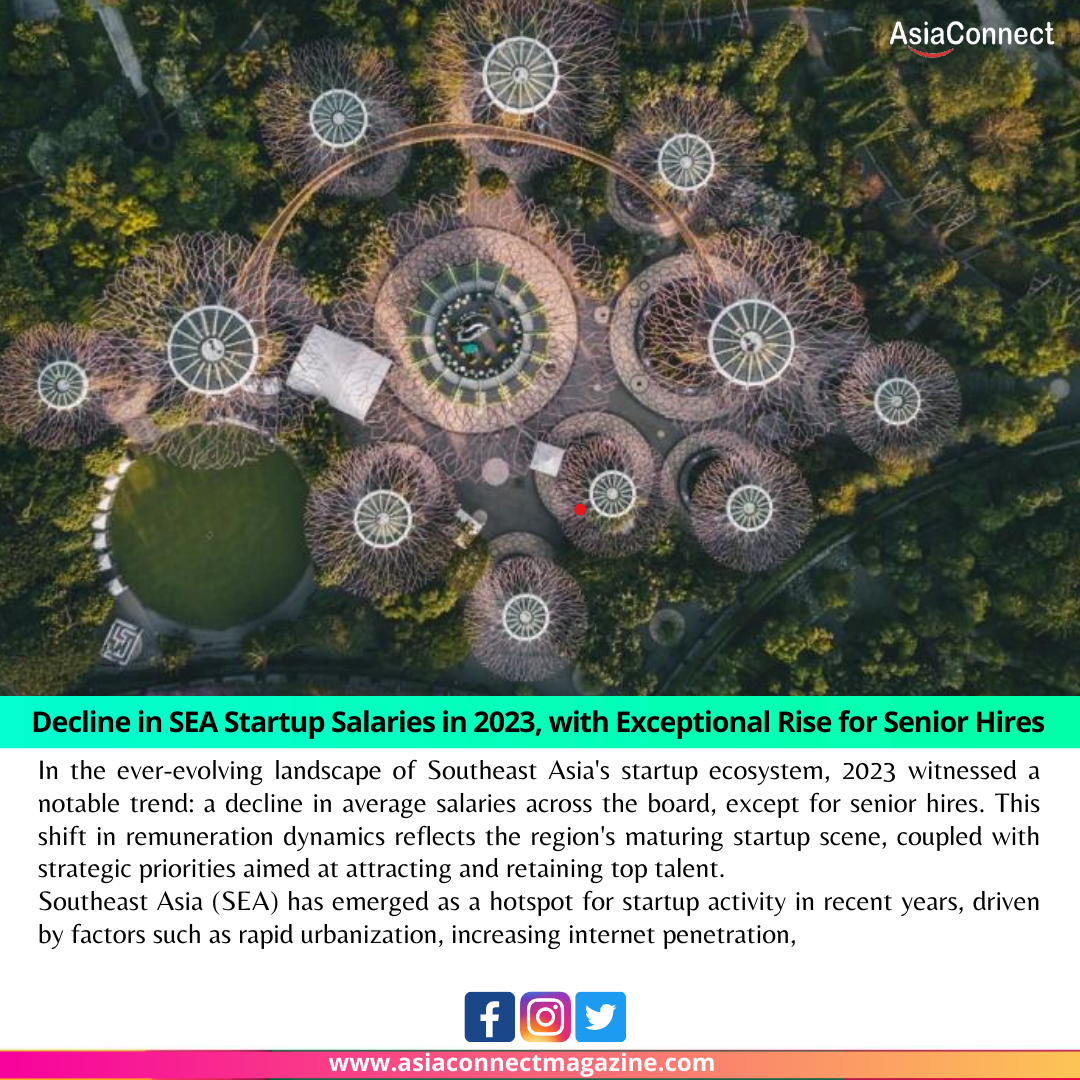In the ever-evolving landscape of Southeast Asia’s startup ecosystem, 2023 witnessed a notable trend: a decline in average salaries across the board, except for senior hires. This shift in remuneration dynamics reflects the region’s maturing startup scene, coupled with strategic priorities aimed at attracting and retaining top talent.
Southeast Asia (SEA) has emerged as a hotspot for startup activity in recent years, driven by factors such as rapid urbanization, increasing internet penetration, and a burgeoning middle class. As a result, the demand for skilled professionals in areas such as technology, marketing, and operations has surged, leading to fierce competition for talent among startups.
However, despite the high demand for talent, data from 2023 indicates a general downturn in startup salaries across Southeast Asia. Several factors contribute to this trend:
- Market Maturity: As the startup ecosystem in SEA matures, companies are becoming more financially prudent, especially in the face of economic uncertainties. This newfound emphasis on sustainability and profitability has led many startups to reassess their spending priorities, including employee compensation.
- Increased Competition: With more startups vying for market share and funding, there is greater competition for talent. This has led to a relative equilibrium in salary levels as startups strive to remain competitive while managing their operational costs.
- Remote Work Dynamics: The widespread adoption of remote work practices, accelerated by the COVID-19 pandemic, has introduced greater flexibility in hiring and compensation practices. This has enabled startups to tap into talent pools beyond traditional urban centers, potentially exerting downward pressure on salary levels.
- Investor Scrutiny: Investors, particularly venture capitalists, are increasingly scrutinizing startups’ burn rates and operational efficiency. Consequently, startups may face pressure to streamline their cost structures, including employee compensation, to align with investor expectations.
Despite the overall decline in startup salaries, one demographic stands out: senior hires. In contrast to their junior counterparts, senior executives and experienced professionals saw a notable increase in compensation levels in 2023. Several factors contribute to this divergence:
- Leadership Demand: As startups scale and expand their operations, the demand for experienced leadership talent grows exponentially. Seasoned executives bring valuable expertise and strategic vision to startups, warranting higher compensation packages to attract and retain them.
- Talent Retention: In a competitive market, startups recognize the importance of retaining top talent, particularly at the senior level. Offering competitive salaries and benefits is essential for preventing talent poaching and maintaining stability within the organization.
- Value Proposition: Senior hires often play a pivotal role in driving business growth, shaping company culture, and navigating complex challenges. Recognizing their contributions, startups are willing to invest in their talent by offering attractive compensation packages.
- Specialized Skillsets: Senior hires often possess specialized skillsets and industry knowledge that are in high demand but limited in supply. To secure top talent in niche areas, startups may need to offer above-market salaries and incentives.
In conclusion, the decline in average startup salaries in Southeast Asia in 2023 reflects the region’s evolving startup landscape and shifting priorities amid economic and market dynamics. However, the exceptional rise in compensation for senior hires underscores the strategic importance of experienced leadership talent in driving startup success and competitiveness. As the startup ecosystem continues to evolve, balancing cost considerations with talent acquisition and retention strategies will remain a critical challenge for startups in Southeast Asia.





